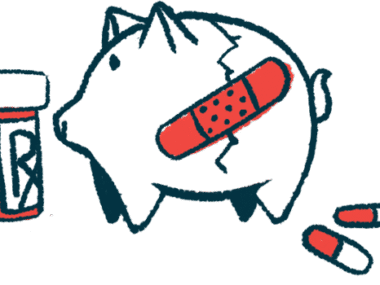New app designed to be health record, journal for patients
AI platform lets patients record experiences, share information
Written by |

Know Rare, a support platform for people living with rare diseases such as Alagille syndrome, launched a health journaling app to help patients keep track of their daily life experiences and health records in a centralized place.
HealthStoryAI was designed by people with experience in the realities of living with rare diseases, and is customizable to any condition, Know Rare said.
The app uses artificial intelligence (AI)-based analytics to summarize journal entries into concise reports that patients can share with caregivers, spouses, doctors, or teachers, or on social media. These analytics “can validate experiences of symptoms and accompanying emotions” for patients to report to doctors, Know Rare said.
“Living with rare disease can mean working with different clinical care teams, with several months’ gap between specialist appointments,” Nina Wachsman, CEO and co-founder of Know Rare, said in a company press release. “Know Rare created the HealthStoryAI app to make capturing notes on what has happened in between visits simple and easy to selectively share with whoever they choose – teachers, caregivers, specialists.”
There are more than 7,000 documented rare diseases, defined in the U.S. as a condition affecting fewer than 200,000 people. Among them is Alagille syndrome, a genetic disorder characterized by liver problems and other organ and tissue abnormalities. While each rare disease is uncommon, they collectively affect up to 30 million Americans.
Health record, journal, and reminder in one
The app has a voice journaling feature to make recording easier for those with vision problems, and uses AI to help discern words for people with speech problems. Features include standardized surveys to evaluate how living with rare disease is affecting a person’s daily life, measuring levels of anxiety, fatigue, stress, and emotional distress.
Users can set customizable medication reminders and notifications, and will be able to flag summaries that they want to later share with their doctors. Digital health records such as lab reports and imaging studies can also be linked in the app.
Since its launch two months ago, 500 rare disease patients have used the app. Fatigue and emotional health surveys contained in the app have been completed nearly 150 times, Know Rare said.
According to findings from those surveys, 53% of patients experience severe fatigue, and 96% have significant emotional distress related to their health.
“Using this tool, people can better understand and manage the care of their rare disease,” Wachsman said.
Know Rare said it is working with patient advocacy groups and researchers to customize the app for specific diseases. These customizations are intended to make the app accessible for anyone living with a rare disease, including those with rare liver conditions like Alagille, primary biliary cholangitis, primary sclerosing cholangitis, and autoimmune hepatitis.
Researchers will have access to de-identified data for analytics, which “may help in the understanding of the disease and in the discovery of new treatments,” Know Rare said.
HealthStoryAI can be downloaded on the App Store or Google Play.


